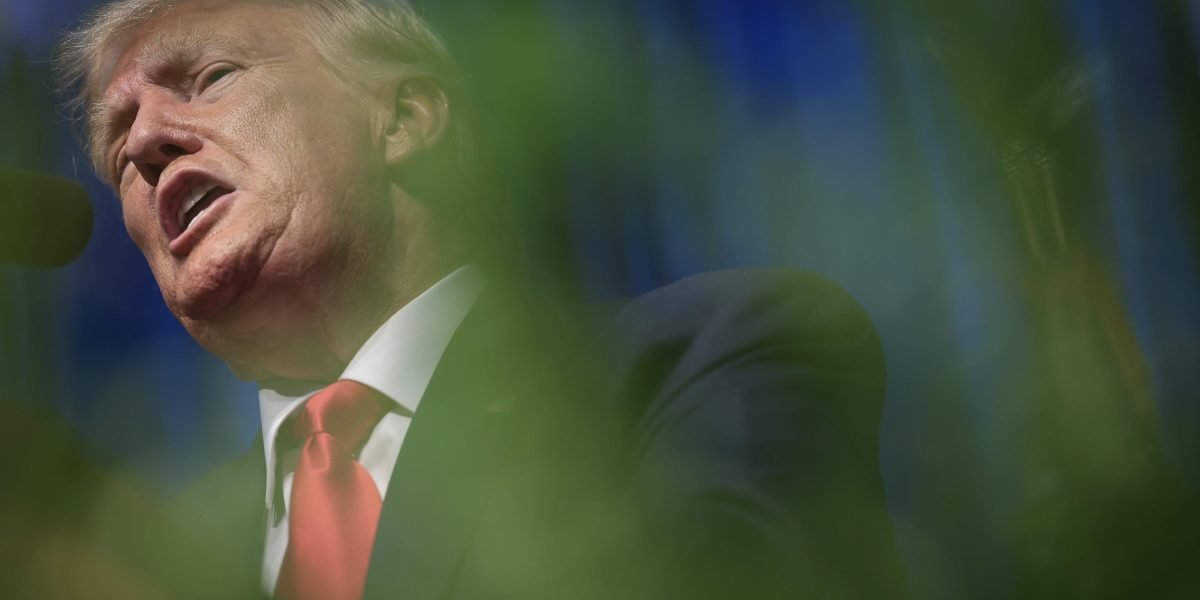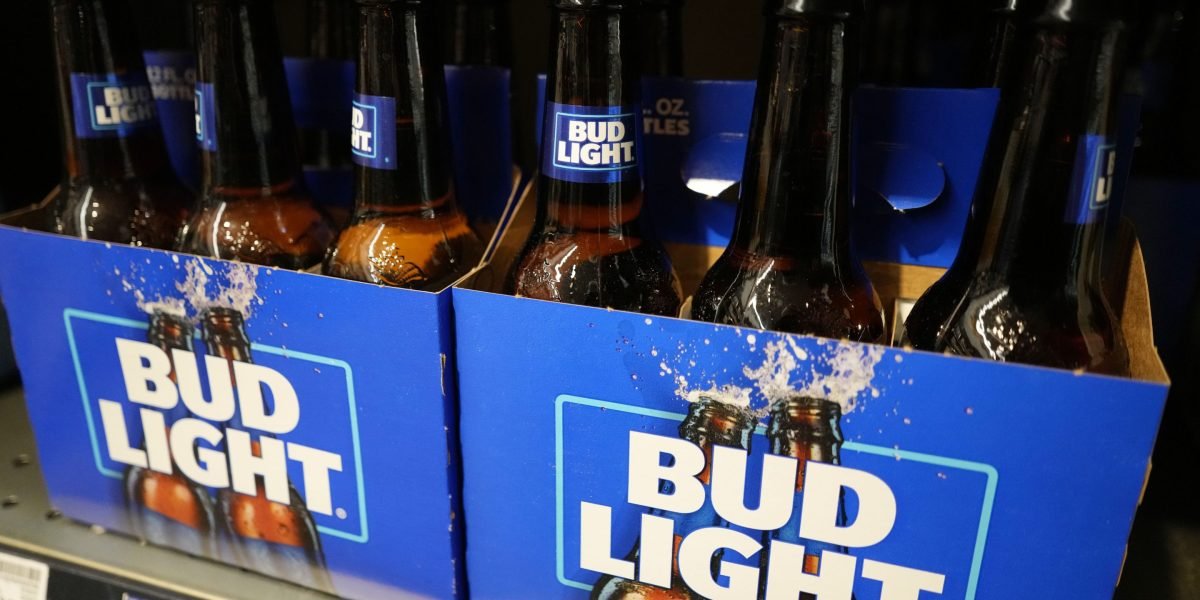Donald Trump was known as a Teflon president because legal trouble rarely stuck to him. But is he a Teflon ex-president? The Republican primary is playing out much like 2016, with Trump waiting in the wings as a crowded field of candidates struggle to win over the GOP base, making a 2020 election rematch likely, but a federal indictment unsealed on Friday makes it two sets of criminal charges levied against him—with more shoes set to drop. It’s of course too soon to tell what happens next, but one thing is clear: More than 70 counts against Trump just make his base of voters angrier. The indictment from special counsel Jack Smith brings 37 counts alleging that Trump engaged in a conspiracy with a close aide—Waltine “Walt” Nauta—to resist returning classified materials stored at his Mar-a-Lago home, despite receiving a subpoena requiring him to do so. It amounts to seven charges, including conspiracy to obstruct justice, corruptly concealing documents, making false statements, and willful retention of national defense information, and it’s the second pending indictment against Trump after Manhattan District Attorney Alvin Bragg brought 34 counts in early April.
Here’s what you need to know.
How bad is this for Trump?
The indictment is unlikely to faze Trump’s hardcore supporters and might even galvanize many of them. Trump himself revealed the indictment Thursday evening—deploying the phrase “Boxes Hoax” in a Truth Social post—and he quickly sent out a fundraising appeal in which he argued the indictment was “nothing but a disgusting act of Election Interference by the ruling party.”
Trump received a hero’s welcome at the Republican conventions in Georgia and North Carolina on Saturday, calling Joe Biden a “totally corrupt president” and the federal indictment a “political hit job.”
Supporters of his who spoke to the BBC said among other things that “nothing in what I read of the indictment changes my mind” and “it is fairly apparent that the charges are politically motivated.”
His key rivals for the GOP presidential nomination have so far avoided attacking him directly over the indictment. Florida governor Ron DeSantis, who ranks second in polls among Republican contenders, tweeted that the “weaponization of federal law enforcement represents a mortal threat to a free society” and pledged to “bring accountability to the DOJ” if he wins the White House.
Asa Hutchinson tweeted that Trump should drop out of the race and “put the good of the country above his candidacy,” while Chris Christie added, “no one is above the law, no matter how much they wish they were.” But the former governors of Arkansas and New Jersey, respectively, trail badly in the polls.
At the far end of the possibilities spectrum, Trump could not only lose the presidential race but also be convicted and end up behind bars. Of the seven charges against him, four carry a maximum prison sentence of 20 years, two of five years, and one of 10 years.
But it’s more likely he’d be sentenced to house arrest with an ankle monitor if convicted, George Washington University law professor Kel McClanahan told Insider.
Does it kill Trump’s 2024 comeback?
Not necessarily, but it adds to mounting legal troubles that could alienate independent voters who are key to winning a general election.
Georgia’s attorney general may be close to deciding whether to bring indictments based on an investigation into whether Trump and his allies broke state laws by trying to overturn the 2020 election result. The 34 felony counts against Trump in New York centered around falsifying business records and hush money paid to porn star Stormy Daniels to keep her quiet about an alleged affair ahead of the 2016 election.
With the documents case adding to these and other legal difficulties, the Republican nomination might now be more at risk for Trump—polls conducted after the indictment’s unsealing will give us a better sense of that.
If Trump’s support among Republicans falters—not a given—DeSantis will benefit. That would likely please Tesla CEO Elon Musk, for one, who tweeted last November that he would support the Florida governor in a 2024 White House bid, adding that his preference was for “someone sensible and centrist.”
Of course, “Teflon Don” has survived two impeachments, so few would count him out at this point. The current indictment also means that Trump is receiving massive media coverage, which could make other GOP candidates look small and uninteresting by comparison to many Republican voters.
Still, no former U.S. president has faced federal allegations of criminal conduct until now, so we’re in uncharted territory.
Are more shoes going to drop?
Much now depends on the decisions of Judge Aileen Cannon, a Trump appointee who was randomly assigned the case in Florida. She’s scheduled to preside in Miami when Trump makes his appearance in federal court on Tuesday afternoon.
Trump’s legal team might try to slow down the court proceedings so that the trial isn’t scheduled until after the 2024 election—perhaps in hopes that a Republican, whether Trump or another candidate, wins the White House and ends the case.
How the pretrial and trial calendars take shape—and how much time is consumed by pretrial motions—will depend largely on Cannon.
There are “abundant opportunities to slow this down, and if they’ve got a judge who is willing to go along with slowing this down, it becomes very hard to predict when this will go to trial,” Duke University law professor Samuel Buell told the New York Times. “Out-of-left-field rulings could be coming here.”
Last fall, Cannon surprised legal experts by ruling in favor of Trump’s request to appoint a special master to review documents seized by the FBI from Mar-a-Lago. The move stopped federal prosecutors from continuing their investigation into the documents, at least temporarily. In December, a federal appeals court ended the special master review and sharply criticized Cannon’s decision. But her ruling nevertheless slowed for nearly three months the criminal investigation into Trump’s handling of the documents.
Legal experts from across the political spectrum lambasted Cannon for the ruling. Whether the blowback nudges her to play things more straight and narrow this time around remains to be seen.
What in the indictment is so awful?
Many people will wonder whether keeping the classified documents was really all that bad on Trump’s part. For years experts and lawmakers have argued that the over-classification of documents is rampant in the federal government, with much information kept secret for little reason.
Both President Joe Biden and former Vice President Mike Pence kept classified documents after their terms as vice president. Pence was recently cleared, while a probe into Biden’s handling of such documents is ongoing (he noted he voluntarily opened his home to investigators).
What makes the Trump case notable is that, according to the indictment, he actively tried to keep classified documents from authorities—telling aides to move them from one area of Mar-a-Lago to another—and shared such documents with people lacking security clearances, all the while indicating he knew some of them were classified.
The documents contained information on U.S. nuclear programs, potential vulnerabilities of the U.S. and its allies to military attack, and plans for possible retaliation in response to foreign attacks, according to the indictment.
“The unauthorized disclosure of these classified documents could put at risk the national security of the United States,” according to the indictment. “Trump was not authorized to possess or retain those classified documents.”
Still, Trump has not been convicted.
“It’s very important for me to note that the defendants in this case must be presumed innocent until proven guilty beyond a reasonable doubt in a court of law,” said Smith, who has overseen the investigation into Trump, in a statement delivered Friday. “To that end, my office will seek a speedy trial in this matter.”
But, he noted, “We have one set of laws in this country, and they apply to everyone.”




